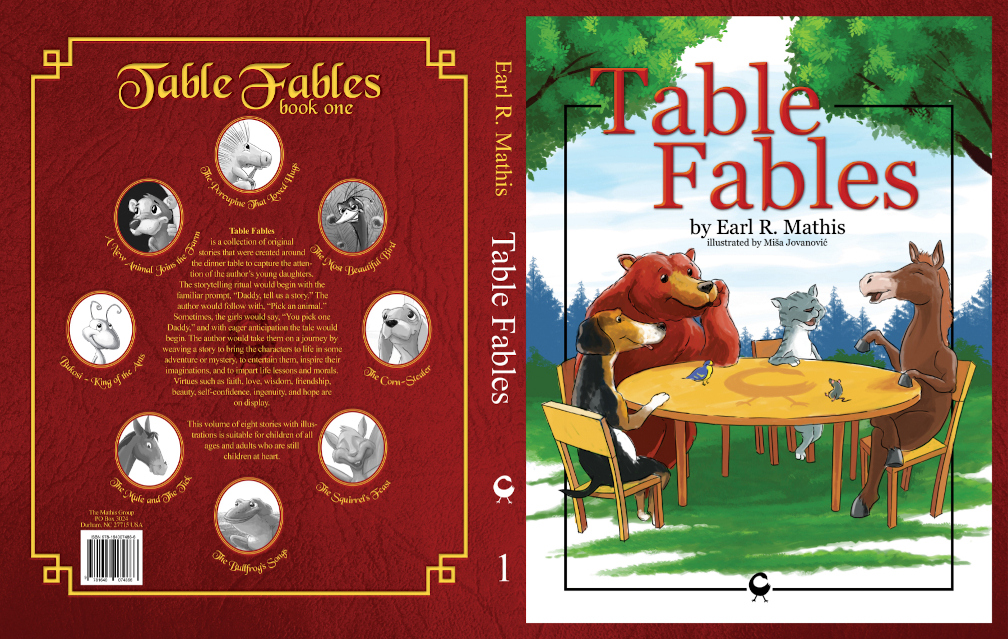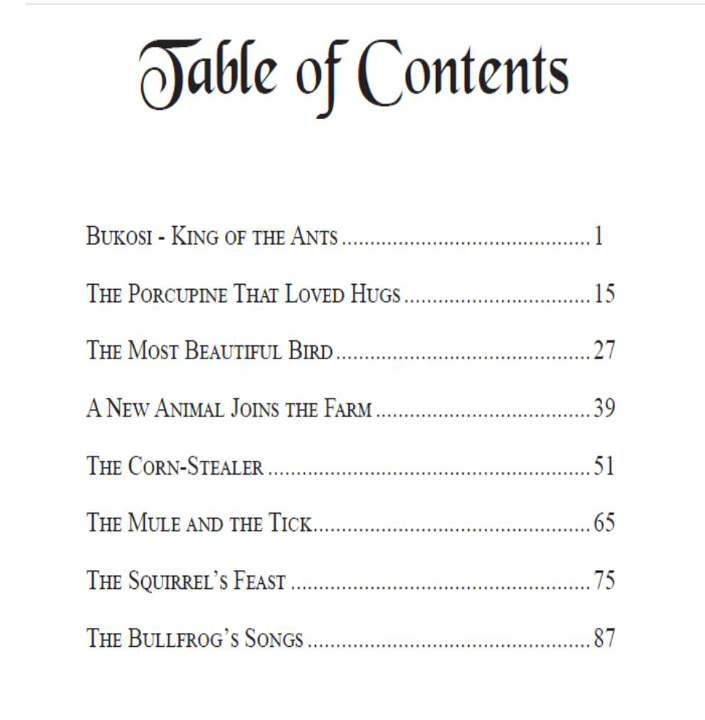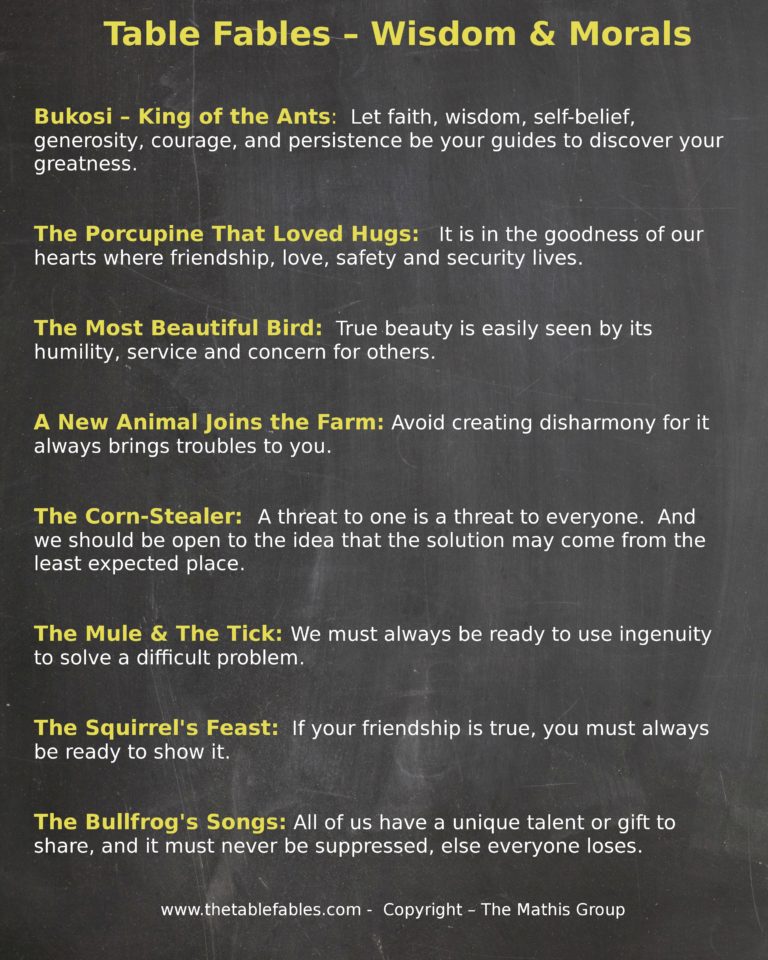Earl Mathis - About The Book

|
|
Table Fables is a hardcover offering that is a collection of eight original books or stories in one. Table Fables was conceived with several goals in mind. It was an opportunity for the author to share his love of storytelling. Also, it allowed him to impart life lessons and morals to his young children around the kitchen table in a manner that would hold their attention and inspire their imaginations. Each story would typically begin by asking each of his daughters to pick an animal. No matter how dissimilar the animals were in terms of their real-world habitat or surroundings, the author’s task was to weave a story that could bring these characters to life through some adventure, mystery, and hopefully a moral lesson. Virtues such as love, honor, friendship, beauty, self-awareness, hope and wisdom are displayed as well as vices such as selfishness, deceitfulness, fear, hatred, and self-doubt. The author has used Adinkra symbols to represent key moral lessons with each of the Table Fables, that can be seen on the cover page as well as the beginning and end of each story. The Adinkra symbols are based on West African wisdom that expresses various themes that relate to the history, beliefs, nature, philosophy, and moral values originally created by the Ashanti Akan of Ghana and the Gyaman of Cote d’Ivoire in West Africa. Adinkra symbols have rich proverbial meaning or marks of wisdom since proverbs play an important role in the Asanti culture and their rich tradition of storytelling. The cover art showcases the Sankofa symbol, which is represented as a bird reaching back to get an egg on its back. The meaning is “to go back, get it,” referring to the importance of going back to our roots to get what was best from the past and to bring it forward which is emblematic of the author's reference to his own childhood memories to create the stories. Table Fables is intended for children of all ages, (primarily elementary grades 1 - 4) and for those adults who are still children at heart. |

|

|